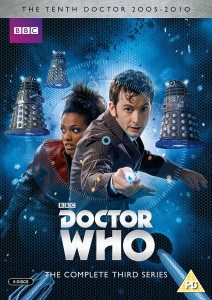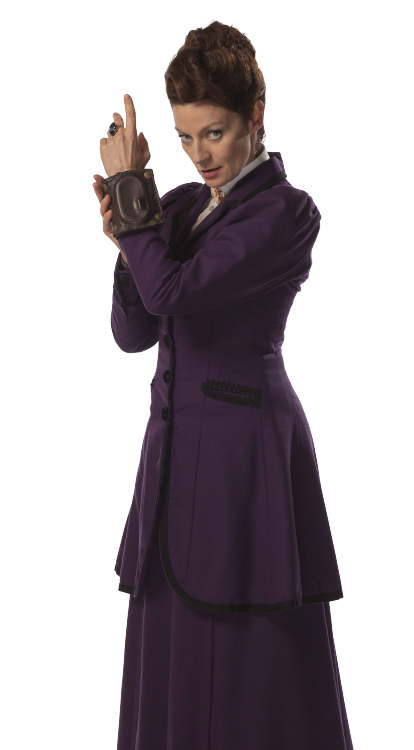03 Feb Why Doctor Who Should Not Be Me
Peter Capaldi has announced he will leave Doctor Who at the end of the next series, and so speculation has begun as to who will take over. This is something of a national past-time, whereby every four or five years the casting of a science fiction television programme becomes a fevered topic of general conversation, after which it is forgotten and once again left to the interest of people who actually watch it.
Before we get into it, let’s address the elephant in the TARDIS. There is, of course, one obvious candidate for the part.
Me.
I mean, just look at this picture of me:
First of all, I have red hair, which would help the Doctor achieve his long-held ambition of being ginger. Second, I look awesome stood outside the TARDIS with my arm stretched out towards the camera, which is a very important part of the job. Look:



Despite my overwhelming suitability for the job, I want to argue the BBC should once again overlook me (twenty-five years I’ve been waiting for the call), this time in favour of someone who looks a little bit different. Maybe, this time, it might be good for him not be a white British male. Maybe, just maybe, he should be a she.
I make the case against myself in response to an awful piece of clickbait published by the Scottish Herald which did the rounds on social media the other day. Entitled ‘Why Doctor Who should never be a woman’, it argues the Doctor cannot be female because Doctor Who is a show for and about nerdy boys, and those boys need role models. (I’m not going to link to the article, and I recommend you don’t bother reading it: it wants your attention and then your outrage in order to generate clicks for advertising money. And since it’s had a sufficient amount of my outrage and attention – I am writing this post, after all – I’ll deny it yours.)
This argument for a perenially male Doctor has come up before, better argued and better written than the Herald piece: in short, the Doctor is something of a rarity in terms of role models presented to young boys in that he looks for the peaceful solution, spurns violence, and likes to solve problems with his brain rather than his fists. ‘You want weapons?’ he says in Tooth and Claw. ‘We’re in a library! Books! The best weapons in the world! Arm yourselves!’
The Herald piece uses this logic to argue that Doctor Who reflects a ‘particular type of male experience’ and as a result, ‘only men can properly understand [it].’ The ‘experience’ in question is that of ‘nerdy boys who prefer indoors to outdoors and books to balls’, because everyone knows ‘not understanding the…stereotypes you’re supposed to aim for’ is limited to those of us with Y chromosomes, right girls?
Putting aside this nonsensical sexism, the Doctor simply does not stand alone as a non-violent role model for young boys: not a lot of punching goes on in your average Pixar movie. I can’t recall the bits in Harry Potter where force trumps wits. And Captain Jack Sparrow would just as soon run away from a fight as to start one. In fact, it is not until you reach mid-adolescence that the dumb violent solutions start to creep into the media you consume, by which time most boys have put away Doctor Who. (They come back though: I speak from experience).
Even if the Doctor was the lone pacifist in a sea of punching superheroes, I find it hard to justify the idea that boys need a fictional character to be of their own gender in order to identify with them, because this is one of the things fiction is for: it enables empathy, and empathy is not limited to any one gender. And since male Doctor Who fans have historically had little trouble empathising with a robot dog, there is little reason to believe they would struggle with a female Doctor.
The author of the Scottish Herald piece, in claiming that Doctor Who is for men alone, has had a massive failure of empathy.
I do not think the majority of male Doctor Who fans are intrinsically sexist, or bigoted: if they are, why do they like the show so much? What have they been watching all these years? Post-2005, Doctor Who has consistently been one of the most diverse shows on television (‘you and your little band, which, by the way, is ticking every demographic box…’ taunts the Master in The Sound of Drums) but even before it came back there was a rich seam of liberalism running through it, as evidenced by this quote from The Face of Evil which has been shared a lot on social media recently for some reason:
One of the Doctor’s finest moments – from an episode shown 40 years ago today. Fancy that. pic.twitter.com/neU9Et3d0B
— Nicholas Pegg (@NicholasPegg) January 22, 2017
I suspect the reason some fans are resistant to a female Doctor, or in some cases a non-British or non-white male Doctor, is the feeling that when that actor is cast it will be the result of a manufactured political pressure which has nothing to do with the show or the people who care for it.
I must, at this point, own up to having once been a female Doctor refusenik. Please do not take this for sexism. I was against the idea of a female Doctor because there was no precedent for it in the show. Prior to the first moments of Matt Smith’s tenure as the Doctor, where he momentarily thought he might have regenerated into a woman, there had been no evidence to suggest Time Lords could swap gender. We’d seen female Time Lords, or ‘Time Ladies’: Romana, The Rani, President Flavia. So when it was regeneration time, and some idiot media commentator or mouthy vox pop who had no interest in the show made a case for Joanna Lumley or whoever, I found myself getting annoyed, because these people clearly did not know what they were talking about. The Doctor is a male Time Lord. There are female Time Lords, but the Doctor is not one of them.
As I come write it down, it seems a pretty feeble argument, and that’s not only because times have changed – the idea that humans, let alone Gallifreyans, have gender fluidity is a lot more mainstream now than it was in 1989 – but also because the show has changed with them. We’ve heard of the gender switching of the Corsair (The Doctor’s Wife), seen a middle-aged white male Time Lord regenerate into a young black woman (Hell Bent), and we’ve met ‘Missy’, a female incarnation of the Master (Dark Water).
I can understand why some fans are worried about the show becoming a political cause célèbre when it comes to the diversity of its lead: this is certainly where the Scottish Herald piece reaches peak frothy-mouth. I think – assuming positive intent on behalf of those fans – this might be related to the intense interest the show receives every time there is a change of actor. Perhaps they’re worried about the show being saddled with an actor who ticks one of the Master’s ‘demographic boxes’ but is otherwise wrong for the part.
This is because once casting for a new Doctor is underway, the speculation favours actors who are well known, since you can’t speculate about unknowns. And these actors tend to have something strangely alien and quirky about them, an element of Doctorishness: Ben Whishaw. Rhys Ifans. Benedict Cumberbatch. Jason Flemyng. Hugh Grant. Rupert Grint. We see them as the Doctor because of how we’ve seen them before: being mercurial, weird, excitable, theatrical, silly, ridiculous even.
Now think of how many well-known female actors, or non-white male actors, have been given a chance to show those characteristics. It’s a much smaller list, and leans towards comedians. It’s why Richard Ayoade is a name being thrown about now, and also why frankly bizarre suggestions like Sue Perkins or Miranda Hart keep coming up. We do not usually get to see female or non-white male actors in roles that have even a whiff of Doctor about them, though when they are given the chance – witness Michelle Gomez giving possibly the best performance as the Master we’ve yet seen – they are, surprise surprise, just as good as any white male.
Now here’s the thing: when it comes to casting the Doctor, the production team have never got it wrong. Thirteen actors have been cast in the part so far and all of them have been the Doctor: tetchy, shambolic, commanding, bohemian, enthusiastic, arrogant, cunning, romantic, grumpy, scarred, optimistic, excitable, fiery. Always unique, always compelling, always him. It’s the reason the show has lasted for half a century: ‘change, my dear, and not a moment too soon!’
So when the roulette wheel of regeneration spins and the ball falls on something other than White British Male Aged 23-56, the actor will be the right actor. She or he will be the Doctor, and they will be amazing. Granted, they will not be as awesome as I would have been, but I’m willing to sit this one out for the good of the show.




No Comments